Breast Reduction in Tunisia
Search and Compare the Best Clinics and Doctors at the Lowest Prices for Breast Reduction in Tunisia
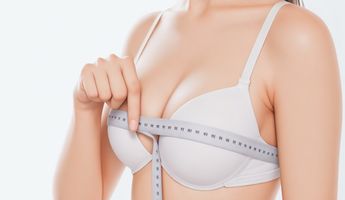
Find the best clinics for Breast Reduction in Tunisia
With Medijump you can browse 9 facilities offering Breast Reduction procedures in Tunisia. The cheapest price available is $1,601 in Mahdia. And for the cheapest price globally, prices start from $89 in Czech Republic.
Breast Reduction in Mahdia
Price: $ 1,601
Breast Reduction in Monastir
Price: $ 1,653
Czech Republic offers the best prices Worldwide
Price: $ 89
From 4 verified reviews
Samir Derradji, 18 March 2018
Hello I follow sick dalger Algeria I ask you a preforma for an opairation on the colon .Thank you
From 11 verified reviews
Craig Mills, 30 July 2019
Excellent private health care looked after my soon after he drowned in sahara beach hotel this month would definatly recommend being cared for there staff were amazing
From 37 verified reviews
Saoussen Saidani, 13 June 2020
My 12 year old daughter Lina has had surgery Pancreas tumorHeavy Operation which went very wellI thank all the staff of the Pasteur clinic for their hospitality and their hygiene ...I thank the doctors who attended the operation and in particular the surgeonAYADI Sofiene who accompanied us from the start for his professionalism as well as DR Walid Miraoui. The discovery of this tumor is done in a very short time a week to manage allThe support of Surgeon Ayadi Sofiene was really perfect as a parent we were reassured and above all in confidence.And especially I thank them for the moral support of My Daughter Lina who kept the smile until the end and who It is found in Total confidenceThank you so much for saving our childMr er Mrs Saidani
From 11 verified reviews
Toumi Mondher, 02 April 2019
The Department of Extraction and Billing at the Center of Imaging and Radiology, two patients, treated me with a reputation as a Tunisian clinic, and I bear the responsibility to speak this
From 9 verified reviews
Ibtyhel Ben bassine, 19 April 2019
I slept my little girl on Thursday, March 8, 2018, was at Top, my gygy, the nurses .... they put me in a calm and clean environment with a service of excellence .. thank you prts and especially pr Dr. hichem
Clinique Taoufik, can be found in Boulevard Mohamed Bouazizi, Tunis, Tunisia and offers its patients Breast Reduction procedures as well as 225 other procedures, across 24 different procedure categories. At present, there is no pricing information for Breast Reduction procedures at Clinique Taoufik. The pricing information is quite specialised, so it's only available on request, and the average price is around ฿78,090. Many medical professionals work at the Clinic, with 10 in total, and Clinique Taoufik is accredited by just one known accreditations institute, ISO 9001:2008
Clinic Apollon, can be found in Boulevard Mohamed Bouazizi, Tunis, Tunisia and offers its patients Breast Reduction procedures as well as 90 other procedures, across 1 different procedure categories. At present, there is no pricing information for Breast Reduction procedures at Clinic Apollon. The pricing information is quite specialised, so it's only available on request, and the average price is around $2,170. A small team of medical professionals undertake all procedures at the Clinic, with 2 in total, and Clinic Apollon is not accredited by any recognised accreditations institutions.
Cosmeticare Travel, can be found in Boulevard Mohamed Bouazizi, Tunis, Tunisia and offers its patients Breast Reduction procedures as well as 34 other procedures, across 4 different procedure categories. At present, there is no pricing information for Breast Reduction procedures at Cosmeticare Travel. The pricing information is quite specialised, so it's only available on request, and the average price is around $2,170. Currently, there's no information available about the doctors at the Hospital, and Cosmeticare Travel is not accredited by any recognised accreditations institutions.
Aesthetica Tour, can be found in Boulevard Mohamed Bouazizi, Tunis, Tunisia and offers its patients Breast Reduction procedures as well as 42 other procedures, across 9 different procedure categories. At present, there is no pricing information for Breast Reduction procedures at Aesthetica Tour. The pricing information is quite specialised, so it's only available on request, and the average price is around $2,170. The lead specialist at the Hospital will be carrying out all the treatments, and Aesthetica Tour is not accredited by any recognised accreditations institutions.
- Home
- Tunisia
Compare Before & After Photos of _procedure_photos.phpBreast Reduction
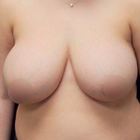
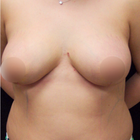
Front view
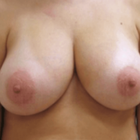
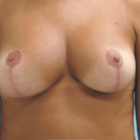
Front view
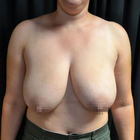
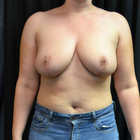
Front view
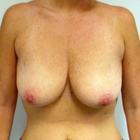
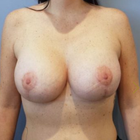
Front view


Front view


Front view
WHY US?
At Medijump, we're making medical easy. You can search, compare, discuss, and book your medical all in one place. We open the door to the best medical providers worldwide, saving you time and energy along the way, and it's all for FREE, no hidden fees, and no price markups guaranteed. So what are you waiting for?

Free

Best Price

Widest Selection

Risk-Free
What you need to know about Breast Reduction in Tunisia
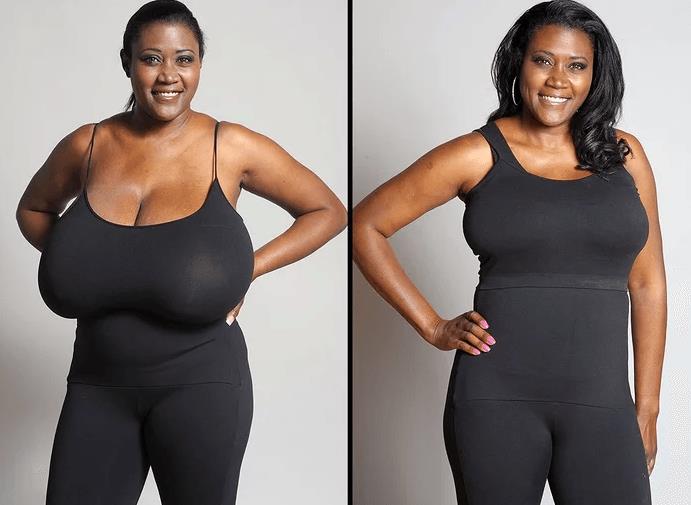
Female Breast reduction (reduction mammoplasty), also known as Reduction Mammoplasty, is a surgical operation to reduce the weight and volume of the breasts. During the procedure, fat, glandular tissue and skin are removed from the breasts, which are then reshaped, and the nipples repositioned. The nipple-areola complex (NAC) is preserved to ensure that lactational ability is not affected. The mammoplasty is performed for three reasons, aesthetic, physical and psychological.
Breast size is determined by genes, hormones, body frame, and weight. For most women, breast size is proportionate to the body, but for some, the breasts are particularly large. Large breasts can cause physical symptoms such as discomfort, backache, neck pain, and skin irritations. Oversized breasts can also cause psychological distress. Common complaints from women with large breasts include not being able to wear fashionable clothes and finding it difficult to take part in active sports. In these cases, breast reduction surgery can be an option.
What does a Breast Reduction Procedure Involve?
The procedure begins with making you lay in the supine position. Anesthesia is given to avoid pain during surgery. The area is sterilized and an incision is given around the areola and down your breasts. The flap of skin containing areola and nipple is displaced and excessive fat, breast tissue, and skin are removed to lessen the size of your mammary gland. In the next step, breasts are reshaped, areola and nipples are again placed over the reduced breasts and stitches are given.
In some cases, when a large amount of tissue and fat is removed, skin flap with areola and nipples is detached and repositioned at a higher level according to the new size. Drainage tubes are inserted into the breasts to drain away blood and fluid. Bandages are applied over the stitched incisions. You are asked to wear a surgical bra. It is tried to make both breasts look alike; however, small variations in the size of breasts and areola can be there.
What about Breast Augmentation?
Breast augmentation might also be performed on women who suffer from a condition called macromastia. It can be due to various reasons such as hypertrophy of adipose tissue in the breast, after menopause, postpartum, genetics, etc. In this condition, your breasts are sagging, and their size is bigger in proportion to your body, causing a number of problems. A woman affected by macromastia suffers from pain in the head, neck, shoulders, and back. Blood circulation and respiration are also disturbed. Men who experience gynecomastia can also opt for breast reduction surgery.
Another case where breast reduction can be an option is when breasts grow particularly large because of the use of hormone replacement therapy (HRT).
What is the cost of Breast Reduction in Tunisia?
It's crucial to bear in mind that Breast Reduction is a substantial procedure. Consequently, contemplating the expense of this process within Tunisia is critical. While the total cost might fluctuate based on individual circumstances and the intricacy of the operation, it typically includes the cost of anesthesia, hospital expenses, surgical equipment, and the surgeon's charge. Having a comprehensive understanding of the total price is critical to make an educated decision and align your financial planning accordingly.
Numerous factors could influence the expense of a Breast Reduction in Tunisia. This includes the skill level of the surgeon, the complexity of the procedure, the kind of anesthesia applied, and postoperative care services. Thorough research and careful financial planning should enable you to handle the costs associated with the process. Also, if needed, you could consider alternatives for financial aid or insurance cover.
How Long Should I Stay in Tunisia for a Breast Reduction Procedure?
Surgery can last between 2 to 5 hours and sometimes even longer depending upon the size of your breasts and amount of fat and tissue that is to be removed - an overnight stay as an inpatient is required. After your condition is monitored, you are discharged from the hospital. You have to stay for at least 14 days in Tunisia for follow up procedures. Regular check-ups are advised in the first few days after surgery. Oral pain killers are given to deal with pain and swelling. Stitches are removed in 2 weeks after which you are allowed to go home. In case you notice any redness, secretion, abnormal pain or inflammation, consult your doctor.
What's the Recovery Time for Breast Reduction Procedures in Tunisia?
It takes several months for recovery from a breast reduction surgery. You cannot go to work for 1 to 2 weeks after the surgery. There will be pain and swelling in the initial days for which you are given some medicines. Avoid intensive physical activity for at least 1 month. You are asked not to wear underwire bras for a few months. You are allowed to wear a normal bra after 4 weeks. It takes 6 to 8 weeks for the swelling and tenderness to go away. Even after complete recovery, scars do not disappear. However, they are faded and become less visible. Changes continue to take place for a year after going through this surgery.
What sort of Aftercare is Required for Breast Reduction Procedures in Tunisia?
You should consider the following points to take care of yourself after surgery:
- Do come for regular check-ups.
- Take your medicines regularly, as and when prescribed by your physician.
- Make sure that someone lives with you to look after you.
- Follow a healthy diet plan for a better recovery.
- Do not wear fancy, underwire bras in the early days. Wear surgical bra only.
- Wear loose clothes, tees, and shirts.
- Avoid excessive, unnecessary movement of your breasts.
- Do not take a bath in the first few days, a wet bandage can be the cause of infection.
- Do not ignore any kind of soreness, redness or abnormal secretions from your breasts. Visit your doctor immediately.
- Drink plenty of water. It is very effective for a quick recovery.
- Use icepacks to help you with swelling.
- Do not try to lift heavy objects because your movement is restricted due to stitches. It can open up your stitches before time.
- Do some stretching exercises when told by your physician.
What's the Success Rate of Breast Reduction Procedures in Tunisia?
Breast reduction mammoplasty is found to be successful in most of the cases. According to a survey, 80% of women are satisfied with the results of the surgery. This effectively reduces neck pain, back pain, headache, and shoulder pain, with your breasts no longer sagging and causing these problems. Respiratory and circulatory problems are also resolved. In case this surgery is not successful, it leaves prominent scars which can be subjected to hypertrophy. There might be less than the required amount of tissue and fat removal. Sometimes, more breast tissue is removed leaving your chest flat. A secondary breast reduction surgery is performed to cope with this.
For an in-depth and personal review of the pros and cons of Breast Reduction, including before and after shots, watch this video blog.
Are there Alternatives to Breast Reduction Procedures in Tunisia?
Following are some alternatives to reduce your breast size without going through a surgery:
- Weight Loss: losing weight can also be effective in the case of reducing breast size. Some exercises are there to help you decrease your size. Exercise removes excess adipose tissue making your breasts smaller.
- Liposuction: it is a less invasive method in which a small incision is given to insert a cannula and fat is sucked from it reducing breast size. There are least scarring and recovery is faster.
- Fitting bra: it is not a permanent method to reduce your breast size but a specialized fitting bra can be helpful in making your breasts look smaller. It is not a standard bra.
What Should You Expect Before and After the Procedure
Knowing what to expect before and during a Breast Reduction helps you prepare physically, intellectually, and emotionally for the experience. A comprehensive health examination is scheduled before the procedure. Along with preparing for the procedure by following the pre-surgery instructions supplied by your healthcare institution, this is also your chance to discuss your hopes and concerns with the surgeon. Your food routine, medication regimen, and lifestyle practises might need to change as a result of this preparation.
After the surgery, it's common to feel some soreness, inflammation, and sometimes even bruising. All of these symptoms can be treated with the right medication. It's important to unwind, refrain from strenuous activity for a few weeks, wear a bra with a specific purpose, and follow a specific wound care regimen.
What are Potential Risks of Breast Reduction?
The Breast Reduction, similar to any other surgical procedure, poses possible risks and complications such as infection, bleeding, altered sensation in the nipple or breast due to anesthesia, and difficulties in breastfeeding post-operation. It is imperative to have a detailed discussion about these potential issues with your healthcare professional at the consultation phase.
It's important to know that the probability of these risks occurring is minimal and can be reduced further by opting for a well-respected clinic and surgeon, following the pre-surgical instructions, and adhering to the aftercare routine provided.
Whilst the information presented here has been accurately sourced and verified by a medical professional for its accuracy, it is still advised to consult with your doctor before pursuing a medical treatment at one of the listed medical providers
No Time?
Tell us what you're looking for and we'll reachout to the top clinics all at once
Enquire Now

Popular Procedures in Tunisia
Prices Start From $85

Prices Start From $120

Prices Start From $692

Prices Start From $236

Recommended Medical Centers in Tunisia for Breast Reduction

- Interpreter services
- Translation service
- Religious facilities
- Medical records transfer
- Medical travel insurance
- Health insurance coordination
- TV in the room
- Safe in the room
- Phone in the room
- Private rooms for patients available

- Interpreter services
- Translation service
- Religious facilities
- Medical records transfer
- Medical travel insurance
- Health insurance coordination
- TV in the room
- Safe in the room
- Phone in the room
- Private rooms for patients available

- Interpreter services
- Translation service
- Religious facilities
- Medical records transfer
- Medical travel insurance
- Health insurance coordination
- TV in the room
- Safe in the room
- Phone in the room
- Private rooms for patients available

- Interpreter services
- Translation service
- Religious facilities
- Medical records transfer
- Medical travel insurance
- Health insurance coordination
- TV in the room
- Safe in the room
- Phone in the room
- Private rooms for patients available

- Interpreter services
- Translation service
- Religious facilities
- Medical records transfer
- Medical travel insurance
- Health insurance coordination
- TV in the room
- Safe in the room
- Phone in the room
- Private rooms for patients available

- Interpreter services
- Translation service
- Religious facilities
- Medical records transfer
- Medical travel insurance
- Health insurance coordination
- TV in the room
- Safe in the room
- Phone in the room
- Private rooms for patients available

- Interpreter services
- Translation service
- Religious facilities
- Medical records transfer
- Medical travel insurance
- Health insurance coordination
- TV in the room
- Safe in the room
- Phone in the room
- Private rooms for patients available

- Interpreter services
- Translation service
- Religious facilities
- Medical records transfer
- Medical travel insurance
- Health insurance coordination
- TV in the room
- Safe in the room
- Phone in the room
- Private rooms for patients available

- Interpreter services
- Translation service
- Religious facilities
- Medical records transfer
- Medical travel insurance
- Health insurance coordination
- TV in the room
- Safe in the room
- Phone in the room
- Private rooms for patients available

- Interpreter services
- Translation service
- Religious facilities
- Medical records transfer
- Medical travel insurance
- Health insurance coordination
- TV in the room
- Safe in the room
- Phone in the room
- Private rooms for patients available
Breast Reduction in and around Tunisia
About Tunisia
Tunisia is one of the few countries which can cater to everyone and it manages to combine climate, golden beaches, history, and shopping for an “all-around” experience. It has a high standard of healthcare and an excellent reputation for cosmetic surgery. Cosmetic and plastic surgeons are regulated by the Tunisian Ministry of Health and the private clinics have state-of-the-art equipment and English-speaking staff. Tunisia welcomes an ever-increasing number of medical tourists each year, many of whom travel for Breast Reduction procedures. Medical Tourists travel from all across the globe, particularly from Europe and neighboring African countries with an inferior healthcare system. Popular medical tourism destinations outside of the capital, Tunis, include Sousse and Mahdia
Popular Parts of Tunisia
- Tunis, the country’s capital, is overflowing with a history that dates from the 4th Century BC. The city is divided into two parts, the old city known as the medina and the new city (or Ville nouvelle in French). Many tourists visit Tunis to see the Archaeological Site of Carthage which is also a UNESCO World Heritage Site. The beautiful Islamic architecture in medina also attracts many tourists to the city.
- Tozeur is known as a home to an enchanting desert oasis, which was a place to rest and refuel for caravans crossing the Sahara. Another main attraction in the city is the medina, where tourists can find lines of beautiful brick-patterned traditional dessert houses. Chott el Djerid, Sahara’s largest salt pan, is a popular day-trip destination.
- Sousse is located on the coast of the Mediterranean Sea. It offers good beaches with a clear blue sea. The city has been fought over by the Romans, Arabs, and Europeans, giving it a colorful history and culture. Sousse Archeological Museum is one of the most visited sites in the country; it has the second largest collection of mosaics in the world.
- Hammamet is the country’s original tourism resort. The city has beautiful gardens filled with oranges, lemons, and other citrus plants. It also has wonderful sandy beaches with crystal clear water. Just like any other city in Tunisia, this city is also brimming with interesting histories. Sites such as The Gafsa Museum and Bardo Museum will give insights about the Islamic faith and culture.
- Douz, also known as “the gateway to the Sahara.” Tourists who want to experience the Sahara Desert come to this city. Take a camel trip or a 4-wheel-drive into the Sahara or see the Museum of the Sahara that has an interesting collection portraying traditional Saharan life.
Weather and Climate in Tunisia
The North of Tunisia has a subtropical Mediterranean climate with mild rainy winters and hot summers. The South and inland areas have a tropical desert climate.
The weather is relatively comfortable throughout the year. Summer starts in June and lasts until August. The average temperature is between 28 °C to 32 °C with July and August being the hottest months. The heat is not as bad on the coast because of the seaside breeze. Be aware that July to September is the jellyfish season.
The heat decreases in autumn and the weather is somewhat more comfortable. There are occasional rain showers in September. The temperature in October can be like summer during day time, but cold at night. October has more rain than September. The season lasts for three months from September to November with an average temperature of around 19 °C to 29 °C.
The weather in winter can be uncertain. The average temperature is between 16 °C and 18 °C, but it can drop to 7 °C at night and below 0 °C in highlands and deserts and a clear sky is rare during this season.
Spring comes in March and the temperature can rise to 20 °C. Mornings and nights are cold; there is still a high probability of rains and thunderstorms at the end of this season.
Getting Around in Tunisia
Tunisia has several international airports. The main airport is Tunic-Carthage International Airport. It has international connections with major European countries and the Middle East. The airport is the hub for Tunisair, Tunisair Express, and Nouvelair. Other airports that have international flights are Enfidha-Hammamet, Monastir Habib Bourguiba, Djerba-Zarzis, and Tabarka-Aïn Draham.
Taxis and buses are available to get to the city center from Tunis Airport. The SNT bus line departs every 30 minutes from the airport, the ticket costs less than 1 TND. There is also the TUT bus which departs every 15 minutes and is more luxurious and expensive.
Airport taxis are available at the airport taxi stand and are usually metered. Always make sure that the driver turns the meter on before riding the taxis. A journey to the city should cost around 5 TND. An extra cost will be added if you have baggage.
Getting around in Tunisia can be done by several transportation modes. Tunisair Express provides domestic flights between Tunis, Tozeur, Djerba, and Gabes. The Train is also available and the national train company in the country is SNCFT that runs modern and comfortable trains from Tunis to Sousse, Sfax, and Monastir. There are three classes of service that tourists can choose. The fare from Tunis to Sousse is between 6 to 10 TND. The long-distance bus is an economical option to travel between big cities such as Tunis, Hammamet, and Nabeul. The buses usually depart every 30 minutes.
Tourist Visas in Tunisia
Citizens of 97 countries (including Australia, China Singapore, the United States, and Russia) can visit and stay in Tunisia for up to 90 days without a visa. Other nationalities are advised to check with their local Tunisia embassy. Tunisia provides an online visa application for nationalities that needs a visa to enter. The eVisa will simplify the process of obtaining travel authorization to enter the country.
Additional Information
-
Local Currency: the local currency is the Tunisian dinar (TND). 1 USD converts to 2.61 TND.
-
Money & Payments: ATMs can be found in most cities and in all tourist areas. Many ATMs have withdrawal limits of 400 TND. Credit cards (MasterCard and Visa) are accepted in major cities and tourist areas. They can be used for shops, car hire, or top-end accommodation. Always make sure to carry cash if you want to travel outside major cities. Tipping is not necessary but will be appreciated.
-
Local Language: Arabic is the official language of Tunisia. French is very common due to the country’s former status as a French protectorate. English is still very limited except in the tourist areas and expensive hotels.
-
Local Culture and Religion: Islam is the major religion with 98% of the population identified as Muslim. There is a small group of Christian and Jews. Since most of the population is Muslim, always remember that the dress code is important in Tunisia.
-
Public Holidays: Tunisia celebrates major Islam holidays. The country hosts several annual festivals throughout the year such as The International Festival of the Sahara, Yasmine Hammamet Festival, and the International Festival of Carthage.
Popular Searches
- Plastic Surgery in Thailand
- Dental Implants in Thailand
- Hair Transplant in Thailand
- Breast Augmentation Thailand
- Gastric Sleeve in Thailand
- Gender Reassignment Surgery in Thailand
- Laser Hair Removal in Bangkok
- Botox in Bangkok
- Dermatology in Bangkok
- Breast Augmentation in Bangkok
- Coolsculpting in Bangkok
- Veneers in Turkey
- Hair Transplant in Turkey
- Rhinoplasty in Turkey
- Stem Cell Therapy in Mexico
- Rhinoplasty in Mexico
- Liposuction in Mexico
- Coolsculpting in Tijuana
- Rhinoplasty in Korea
- Scar Removal in Korea
- Gastric Sleeve in Turkey
- Bone Marrow Transplant in India
- Invisalign in Malaysia
- Plastic Surgery in the Dominican Republic
- Tummy Tuck in the Dominican Republic
- Plastic and Cosmetic Surgery in Poland
- Rhinoplasty in Poland
- Hair Implant in Poland
- Dental Implants in Poland
- IVF in Turkey








